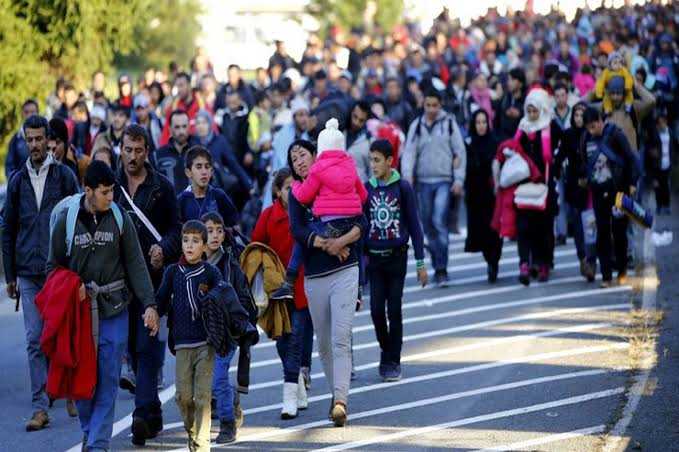Syrian government issues measures related to return of refugees
QAMISHLI (North Press) – The Syrian government issued a group of procedures on Monday regarding the return of Syrian refugees from abroad, days after holding an international conference about the return of refugees in Damascus.
During a parliamentary meeting Monday, Syrian Minister of the Interior Muhammad Khaled Rahmoun said that a set of instructions was issued to facilitate the return of Syrians living abroad.
He added that those who wish to return will be received at official border crossings, in reference to those fled through smuggling.
He pointed out that a decision will be made to accelerate handling those entering through border crossings.
Rahmoun noted that those failed to perform compulsory military service will be granted a period of 15 days to settle their situations, and those who failed to join their reserve service will be granted one week.
On November 11 and 12, an international conference about the return of Syrian refugees was held in Damascus with the participation of representatives from other countries.
Shortly before the conference, angry reactions erupted even from loyalists of the Syrian government themselves, who demanded a solution to the crises of bread, fuel, water, and electricity.
The European Union declared that holding the conference was premature and believed that the priority should be to take real measures to create the appropriate conditions for a safe return.
In an interview with North Press, Syrian refugees from the city of Homs described their return to Syria as an “impossible step.”
During a session of the UN Security Council on October 27, Washington called for an international boycott of the so-called “Refugee Conference.”
This comes in light of suffocating crises in government-held areas, in addition to lack of job opportunities, rise in prices, low standards of living, and the destruction of infrastructure.
The number of the Syrian refugees abroad has exceeded about six million people, distributed over 126 countries, according to a report by the United Nations High Commissioner for Refugees (UNHCR) in 2019.

